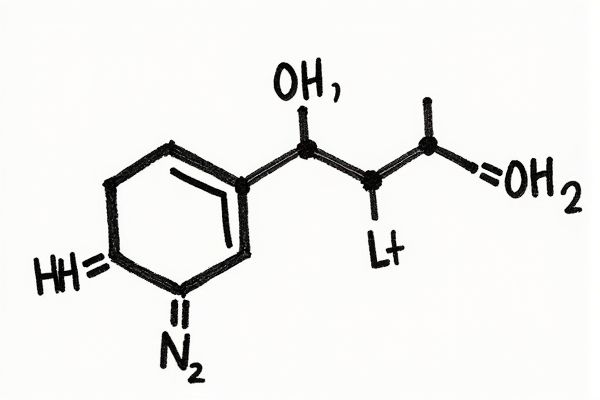In today's technologically advanced world, having a reliable BIOS is essential for ensuring that your PC runs smoothly and efficiently. With various brands competing for the top spot, selecting the best one for your needs can be overwhelming. Brands like ASUS, MSI, and ASRock have consistently stood out for their performance and user-friendly features, while Gigabyte continues to impress with its robust support and innovation. To discover which BIOS brand might be the perfect fit for your system, take a closer look at the options detailed below.

Illustration of bios
Best brands of bios in 2025
American Megatrends International LLC
American Megatrends International LLC (AMI) is a global leader in the technology sector, specializing in dynamic firmware solutions since its founding in 1985. Known for its industry-leading AMIBIOS and Aptio(r) V UEFI BIOS firmware, AMI supplies state-of-the-art hardware and software to top-tier manufacturers, with its products deployed in a high proportion of all servers, datacenters, embedded devices, and personal computers worldwide. By 1994, AMI claimed that 75% of PC clones used AMIBIOS. The company is a member of several industry associations, including the Unified EFI Forum and the Trusted Computing Group, and has offices in eight countries. AMI's solutions are critical for security, orchestration, and manageability in computing platforms. For more information about their innovative technology solutions, visit their official website.
Phoenix Technologies
Phoenix Technologies is a pioneering company in the core systems software industry, particularly renowned for its BIOS (Basic Input/Output System) products. Since its incorporation in 1979, Phoenix has established itself as a leader, creating the PC clone industry with its original BIOS product in 1983 and holding over 200 technology patents. The company's BIOS solutions support and enable the compatibility, connectivity, security, and management of various components in computing devices, with a significant market presence that once reached up to 70% of the desktop BIOS market. Phoenix's products, such as SecureCore Tiano™ and Embedded BIOS®, have revolutionized the PC user experience, delivering unparalleled performance, security, and reliability. The company has shipped firmware in over one billion systems, solidifying its position as a global leader in core system software. For more detailed insights and information, visit their official website.
Insyde Software
Insyde Software is a leading global provider of UEFI firmware and systems management solutions, renowned for its robust industry relationships and technological edge. The company forecasts a significant compound annual growth rate (CAGR) of 20% in revenue and 43% in net profit from 2023 to 2030, driven by the integration of AI technologies and expansion of its total addressable market. As the #1 BIOS vendor and market share leader in the notebook segment, Insyde Software supports major clients including AMD, Intel, Microsoft, and NVIDIA. With over 600 employees worldwide and major operations in the US, Japan, China, and Europe, Insyde Software is committed to delivering exceptional technology and engineering services. The firm's positive outlook is underpinned by its scalable business model and strong market position.
Dell BIOS
Dell Technologies is renowned for its robust and reliable BIOS solutions, particularly through its BIOS Recovery tools, which ensure the stability and recoverability of their systems. For instance, Dell's BIOS Recovery 2 and 3 software utilize Boot Block Technology to recover corrupted BIOS from either the primary hard disk drive or an external USB drive, enhancing system resilience. This technology is supported in various Dell models, including Alienware, Inspiron, and XPS, highlighting Dell's commitment to system integrity. Additionally, Dell's market leadership in server and storage solutions, with a significant market share of 32.3% in external enterprise storage systems, underscores their expertise in BIOS and system management.
HP BIOS
HP BIOS stands out as a leading component in the industry, known for its stability, compatibility, and innovative features. HP maintains its own BIOS code, allowing for quick enhancements and modifications to meet critical customer requirements, a practice that has been in place since the days of Compaq PC-compatible BIOS. The HP BIOS undergoes rigorous quality assurance, including internal verification and independent compatibility testing, such as certifications from Windows Hardware Quality Labs (WHQL). This ensures smoother computer deployment and fewer compatibility issues, making HP BIOS a reliable choice for enterprise customers. As of 2022, HP's BIOS development team continues to support the latest microprocessors and operating systems, reflecting their commitment to staying at the forefront of technology. For more detailed insights, explore the HP BIOS Setup Whitepaper.
ASUS BIOS
ASUS, known for its innovative and reliable BIOS solutions, stands out as a leading producer in the industry. Their UEFI BIOS, featured in motherboards like the H97-PRO, offers advanced options with fast response times and robust features such as ASUS CrashFree BIOS 3 and EZ Flash 2, ensuring stable and efficient system performance. The BIOS setup menus provide detailed descriptions of parameters, and the ASUS Fan Xpert 3 feature optimizes system cooling control. With a strong commitment to quality, ASUS's BIOS solutions have contributed to the company's significant market share, such as holding a 40% global market share in gaming laptops in 2016. This expertise in BIOS technology has been a key factor in ASUS's reputation as a top PC hardware brand. For more detailed insights on their BIOS solutions, visit their support page.
Lenovo BIOS
Lenovo, through its ThinkPad brand, is renowned for producing high-quality BIOS systems, which have been a cornerstone of its success since acquiring the IBM PC business in 2005. The company's BIOS implementations, such as those in the ThinkPad series, are praised for their reliability and advanced features like drive protection and Trusted Platform Module chips. In 2024, Lenovo continued to lead the global PC market with a 24.8% market share, driven in part by the strong performance of its ThinkPad line. The company's focus on innovation, including the integration of AI technologies, has further solidified its position as a top BIOS provider. Lenovo's commitment to quality and innovation has earned it a loyal customer base and numerous industry accolades.
MSI BIOS
MSI BIOS, developed by Micro-Star International, is renowned for its advanced UEFI (Unified Extensible Firmware Interface) architecture, offering fast booting, support for hard drive partitions larger than 2 TB, and unlimited partition capabilities. MSI's UEFI BIOS also includes a Compatibility Support Module (CSM) for compatibility with older devices. In 2022, despite a significant drop in motherboard sales, MSI still delivered 5.5 million units, though this was a 42% decline from the 9.5 million units sold in 2021. The company's BIOS updates are easily manageable through various methods, including M-FLASH and MSI Center. MSI's commitment to innovation and compatibility has made it a leading brand in the motherboard market.
Gigabyte BIOS
Gigabyte BIOS is renowned as one of the top producers in the motherboard industry, known for its reliable and feature-rich BIOS versions. For instance, Gigabyte has released multiple BIOS updates in recent years, such as BIOS F11f, F11, and F12b, to enhance performance and address user concerns like idle power usage. Their BIOS versions often include advanced settings and compatibility with the latest processors, making them a favorite among enthusiasts and professionals. The company's commitment to regular updates and user feedback has contributed to its strong market presence, with Gigabyte being one of the major players in the motherboard market, which is expected to grow significantly by 2030. Gigabyte's BIOS support and frequent updates have earned the trust of users, particularly in the gaming and high-performance computing segments. For more information, visit their official website.
Intel BIOS
Intel remains a leading producer of BIOS settings, with its default configurations highly regarded for optimizing performance and power management. As of 2024, Intel's BIOS settings, such as those for the Core i7-12700K, include specific values like PL1 at 125W, PL2 at 190W, and ICCMAX at 240A, ensuring efficient and stable operation. Despite facing competition from AMD, Intel still holds a significant market share, with 71.3% in the desktop CPU market and 76.1% in the overall PC market. Intel's ability to design and manufacture its own chips is a rare advantage in the semiconductor industry. This integrated approach helps maintain Intel's dominance in the market. For more information, visit their official platform page.
















Leave a Reply
Your email address will not be published.